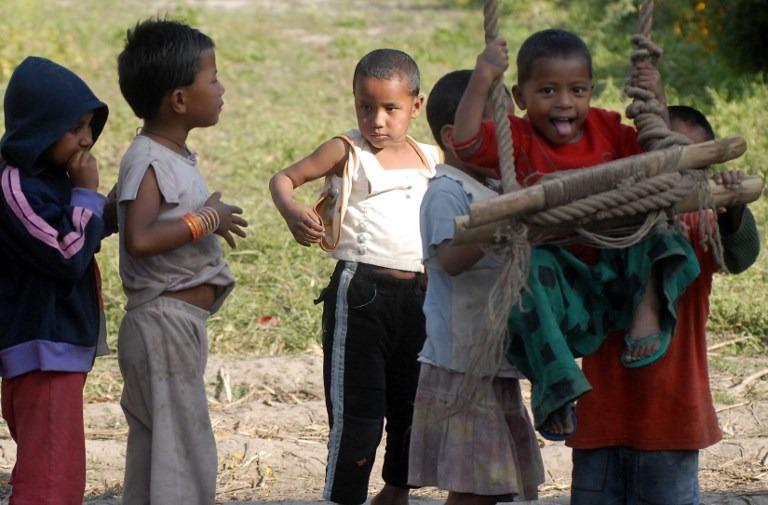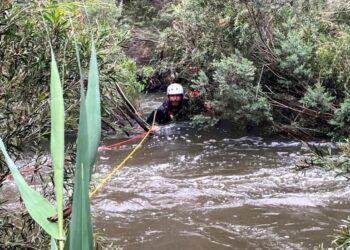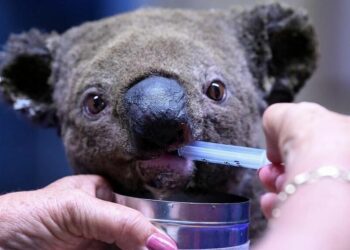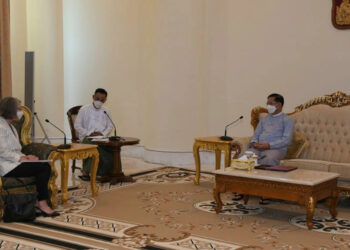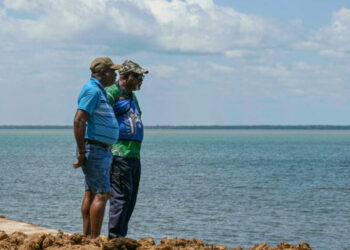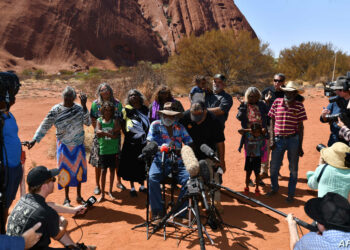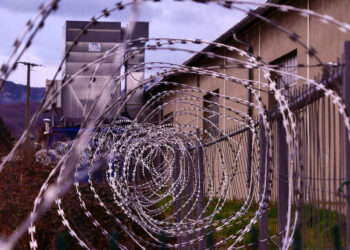Australia is the first country in the world to pass a historic ruling that links a popular vacation practice – visiting and volunteering at orphanages overseas – to modern slavery. This has been met with praise from lobbyists but confusion from some sectors of the general public. After all, isn’t giving up part of your holiday to offer love and support to vulnerable children a practice of generosity? Or at least a more beneficial way of spending your time than sticking to the tourist sites and bars – right?
Over a decade ago, I was living in Cambodia as a long-term volunteer, and I started to get suspicious about the proliferation of orphanages that were springing up around the main tourist spots. I saw “orphans” being paraded in front of foreign audiences in nightly dance shows, begging on the street outside nightclubs, and accosting passersby to convince them to enter the children’s home. Smiling children would swarm busloads of visitors, fighting for attention, affection, and gifts. On some travel review sites, visiting an orphanage was listed as the top-rated thing to do in the tourist hub of Siem Reap – above even visiting Wonder of the World Angkor Wat.
Everywhere that tourists were, “orphans” were present and visible. It seemed to be a simple story of a war-torn and poverty-stricken country overwhelmed with children who had no one to take care of them. But there was one obvious hole in the narrative: the civil war in Cambodia had ended decades previously. The numbers of orphans should have been gradually getting fewer, not exploding on the scale we were witnessing.
Orphanage as Business
In fact, it was all an elaborate scam. In 2011, UNICEF released a report that found that the vast majority of children in orphanages had parents and that the burgeoning numbers of such institutions could be attributed to a clever business model. On one hand parents were tricked into believing their child was better off in an orphanage than at home, and on the other hand, tourists were seduced into giving donations that often went straight into the pockets of the corrupt owner.
By the time this report was published I was living in Nepal, where details of a comparable situation were beginning to emerge. The numbers of orphanages were going up, just at the point when the numbers of orphans were in rapid decline. Again, the majority of the children living in institutions were found to have living parents, and 90 percent of orphanages were established in the top five tourist districts in the country.
As this issue moved into the limelight, surprisingly similar stories were being uncovered across the world – in Haiti, Myanmar, Uganda, Guatemala, Indonesia, and Kenya to name but a few. Globally the number of children in orphanages that have living parents is thought to be between 80 and 90 percent.
There are manifold reasons why this is a terrible situation.
Firstly, there are abundant stories from around the world of abuse and neglect in residential care institutions. Children in orphanages are often exposed to physical and sexual violence, kept deliberately under-nourished to solicit more donations, and forced to beg, work or dance to make a living.
"They were intentionally malnourished to increase the severity of the situation, in order to motivate visiting volunteers to donate more." An ex-volunteer reveals the true cost of orphanage #voluntourism: https://t.co/NwvYE4ScgR pic.twitter.com/8mDRUKKhWU
— Lumos (@lumos) April 18, 2018
Even orphanages that try to take care of the material needs of the children in their care can do irreparable damage. Decades of research show that children raised in institutions instead of families develop psychological disorders, social problems, and even developmental delays.
Volunteers Make it Worse
The sad fact is that tourists and volunteers visiting and supporting orphanages will always make the situation worse. Short-term interactions with strangers – especially those uneducated in social work and who believe their main job is to offer love – can exacerbate attachment disorders in children who have already experienced abandonment and trauma.
Added to this is the fact that the whole corrupt business model is founded on the demand from tourists for feel-good experiences and avenues to “help.” Quite simply, tourism dollars are fueling the separation of children from their families and perpetuating a cycle of abuse – the exact opposite of what most of the would-be helpers intended.
The mounting evidence for this phenomenon led to it being classified as a form of child trafficking. Orphanage trafficking was recognized for the first time in the U.S. State Department’s Trafficking in Persons report in 2017.
Over in Australia, lawyer Kate van Doore made the legal argument for orphanage tourism as a form of modern slavery, as children are forced to perform, beg, and be on show for tourists, as well as often lie about their family circumstances.
A monumental effort by NGOs and activists including the Rethink Orphanages network helped to launch a government inquiry into orphanage trafficking and its links to tourism, which passed into law in Australia last week. Specifically, the bill requires travel companies, NGOs, and educational institutions to report on how they are mitigating orphanage trafficking and child exploitation in their supply chains.
There is still a long hard fight ahead before the practice of orphanage tourism ceases completely. Although the issue has been debated in the Commonwealth, Australia remains the only country to have introduced legislation.
'Australia vows to fight trafficking for orphanage tourism in Southeast Asia.' via @TR_Foundation https://t.co/7oVzwQAqnQ
— Anti-Slavery International (@Anti_Slavery) April 19, 2018
In North America, these issues remain widely unrecognized. And while there is still a supply of people looking to give their time and money to orphanages, there will continue to be a business incentive to traffic children from their families and exploit them as a tourist attraction.
Uncovering the extent of this problem helped me become a lifelong activist on this issue, and was one of the motivating factors behind the book I co-authored, Learning Service: The Essential Guide to Volunteering Abroad.
Having good intentions and wanting to help is one thing, but volunteering ignorantly and causing harm is inexcusable. The orphanage issue is just one of the ways the voluntourism industry is causing harm.
Outlawing some of the worst forms of volunteering can go part of the way, but we each have to take responsibility and do our research to ensure the “help” we send abroad has the intended positive effect.
Disclaimer: The views and opinions expressed here are those of the author and do not necessarily reflect the editorial position of The Globe Post.

